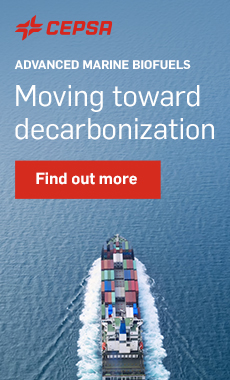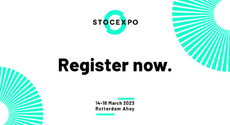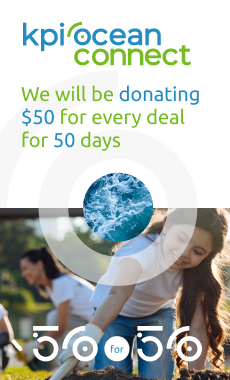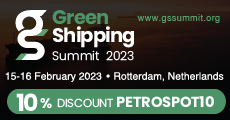X
- Details
- Written by Ian Taylor
The 79th meeting of the Marine Environment Protection Committee (MEPC 79) closed today at 13:30 GMT and now NGOs and industrial associations have been sending Bunkerspot their assessments of the week’s work.
From the NGOs, the Clean Arctic Alliance said that it welcomed the progress to reduce the impact of GHGs and black carbon emissions from shipping on the Arctic – but also called on IMO member states to ‘act decisively’ on regulation.
Dr Sian Prior, Lead Advisor to the Clean Arctic Alliance (which brings together about 20 NGOs focused on protecting the Arctic), said: ‘Shipping’s climate impact must halve by 2030 if global heating is to be kept below the Paris Agreement’s limit of 1.5 degrees, and action on black carbon is essential if the industry is to reach this objective.’
Dr Prior continued: ‘The Clean Arctic Alliance welcomes the support expressed by many IMO member states for deep cuts in climate impacting emissions from shipping by 2030 and for mandatory regulation of black carbon emissions.
‘However, member states must now bring forward concrete proposals for a black carbon regulation for the IMO's pollution prevention and response sub-committee meeting which meets in April 2023, in order to rapidly reduce the impact of black carbon emissions on the Arctic.’
Assessing MEPC 79’s progress on GHG emissions, Dr Prior judged that: ‘It seems likely that when the IMO’s greenhouse gas strategy is revised next year, it will include a solid commitment to decarbonising the shipping sector by 2050, and many member states have supported high ambition commitments involving deep cuts in emissions by 2030, which are crucial for slowing down the impact of climate change in the Arctic.'
Nevertheless, Dr Prior warned that while the NGOs believed IMO is making progress, ‘there is further to go’.
‘Member states,’ urged Dr Prior, ‘must use the time between now and its next meeting (ISWG, GHG14, 20 to 24 March 2023) to reflect on the science which points clearly to the need both for a halving of emissions from shipping by 2030 and full decarbonisation of the maritime sector as close as possible to 2040, rather than 2050.’
On the subject of black carbon – which is of particular importance to the Clean Arctic Alliance – Dr Prior said that the NGOs welcomed the decision to forward their proposal for a new black carbon regulation to the Pollution Prevention and Response (PPR 10) sub-committee for further consideration in April 2023.
As previously reported, the Clean Arctic Alliance has campaigned for the introduction of a new regulation in MARPOL Convention Annex VI Chapter 3 which would require ships to only use distillate or other cleaner fuels or forms of propulsion in and near to the Arctic.
While IMO member states at MEPC 79 did not support a proposal from the Clean Arctic Alliance to strengthen the Arctic heavy fuel oil (HFO) ban by removing the ability for Arctic coastal countries to issue waivers to their flagged ships, the NGOs were encouraged to see that ‘many Arctic states were openly expressing the need to strengthen the ban and close the loopholes’.
Dr Prior commented: ‘We implore Arctic coastal states to not include the possibility of issuing waivers in their domestic regulation and to implement a heavy fuel oil ban which comprehensively bans the use and carriage for use of the world’s dirtiest fuel in the Arctic.’
There were aspects of MEPC 79 which clearly did not meet with the NGOs’ approval.
The shipping industry’s continuing use of exhaust gas cleaning systems – or scrubbers – to meet sulphur emission requirements is a bone of contention for the NGOs and Eelco Leemans, Clean Arctic Alliance Technical Advisor, said: ‘It is disappointing that the IMO has achieved no progress this week towards banning the use of scrubbers in sensitive areas such as the Arctic.’
However, Leemans was rather more pleased to note that: ‘MEPC 79 has agreed that a paper submitted by Clean Arctic Alliance members identifying inconsistencies between the discharge of scrubber wastewater and the UN Law of the Sea Convention should be considered further by the IMO’s legal division. This is an important development since it is clear that the UN Convention on the Law of the Sea (UNCLOS) does not accept transforming one type of pollution into another form of pollution as scrubbers do. In the meantime IMO Member States should ban scrubber discharge in their own waters and ship owners and operators should switch to low sulphur fuels and not install scrubbers which create ocean pollution.’
As Bunkerspot reported earlier today, the Berlin-based NGO NABU has already given the thumbs up to the MEPC 79 adoption of the regulation to designate the Mediterranean as a Sulphur Emission Control Area (SECA), with effect from 1 May 2025 – and now the Clean Arctic Alliance has also welcomed the decision.
Andrew Dumbrille, an advisor with the Clean Arctic Alliance, summed up the NGOs’ response: ‘Not only is this measure important to improve the protection of the Mediterranean Sea and improve the health of coastal inhabitants in the region, but it will contribute to efforts to reduce emissions that have the potential to impact the Arctic.’
Dumbrille continued: ‘The Clean Arctic Alliance also welcomes the support that was indicated by some IMO member states for consideration of new emission control area proposals to address emissions of both SOx, NOx and particulate matter in both European waters and the Arctic”, added Dumbrille. “Now these member states must get to work to develop proposals to put in place control measures, such as ECAs, to reduce air and climate emissions from shipping.
‘For states such as Canada and the US, extending their ECAs to the Arctic would provide comprehensive protections for all communities, including Indigenous communities, and especially to ice covered areas,”continued Dumbrille. “In addition, designation of ECAs in all European waters would be valuable to reduce black carbon reaching the Arctic from further south.’
Another leading climate NGO, Opportunity Green, has also sent Bunkerspot its take on MEPC 79, with its shipping manager Ana Laranjeira concluding: ‘This MEPC was in part defined by an increasingly louder call from the most ambitious in the Pacific and Africa. Pacific nations have long led the way in global climate action on shipping, and are joined by voices from Ghana, Kenya, Maldives, Namibia, Sierra Leone, among others, demanding the IMO to keep the 1.5°C alive and to ensure an equitable transition. But we need all IMO member states on board for ambitious action. Countries must urgently agree to strengthen the IMO’s greenhouse gas emission reduction targets as well as to support concrete regulatory measures, such as the $100 levy proposed by the Marshall Islands and Solomon Islands, and the Fuel Standard, as the only way to ensure a zero-emission transition in shipping that is also equitable and leaves no country behind.’
From among the industry associations, the International Chamber of Shipping (ICS) was the first out of the blocks to offer Bunkerspot a comment on MEPC 79, with the ICS Secretary-General Guy Platten maintaining that: ‘The shipping industry urgently needs clear market and regulatory signals to reduce the investment risk currently surrounding alternative energy sources and technologies.’
Related Reading:
GLOBAL: MedSECA adoption gets the thumbs up from environment NGO
















